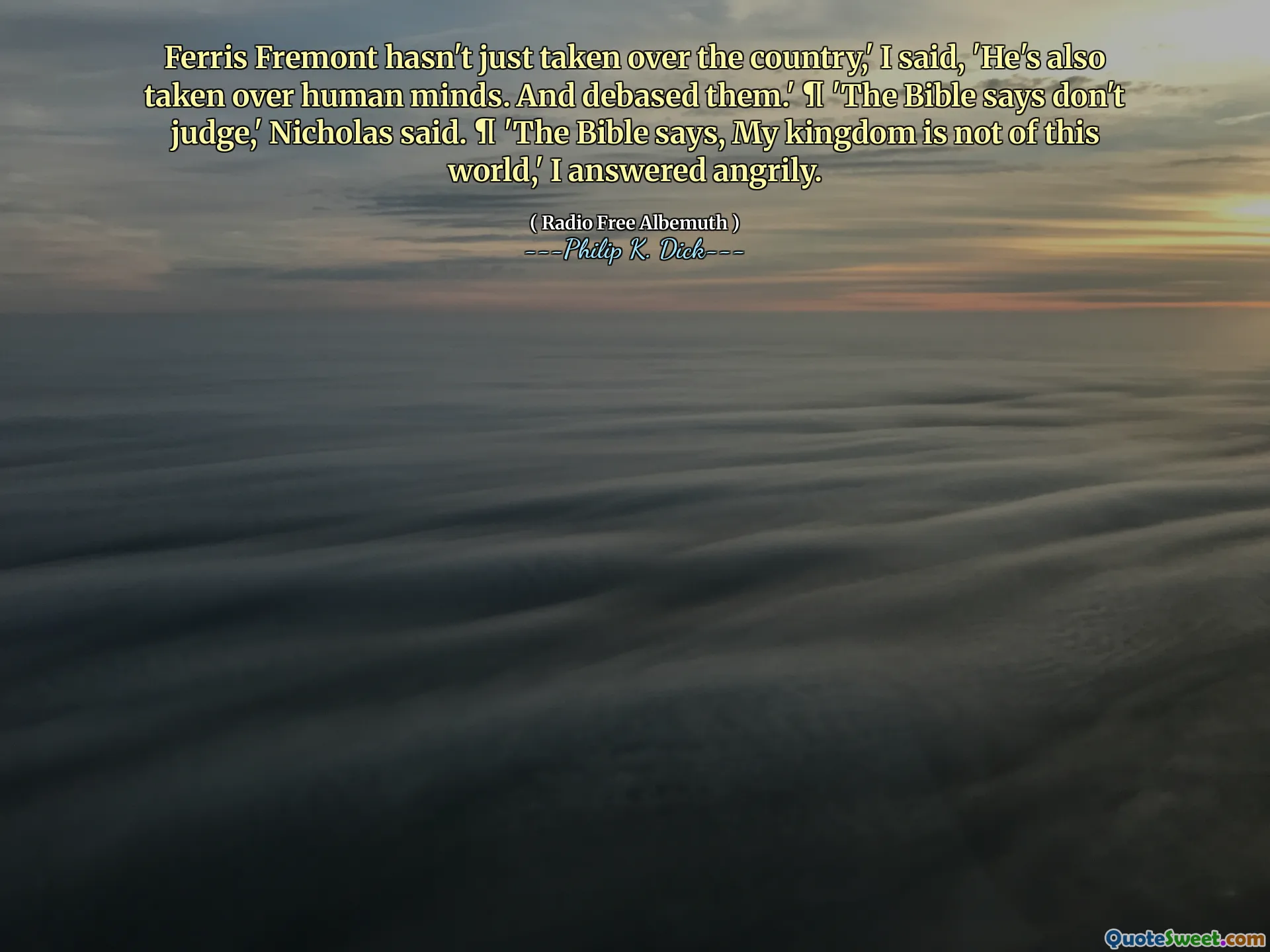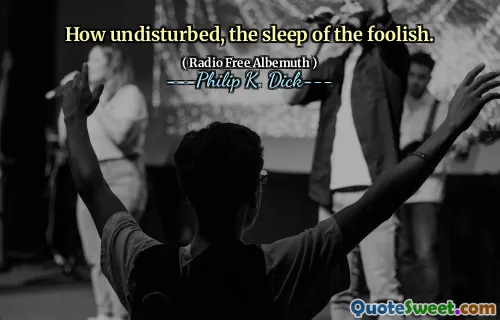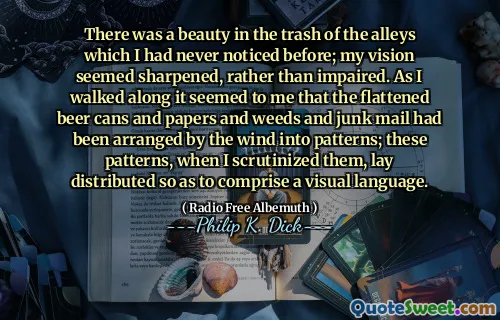
Ferris Fremont hasn't just taken over the country,' I said, 'He's also taken over human minds. And debased them.' ¶ 'The Bible says don't judge,' Nicholas said. ¶ 'The Bible says, My kingdom is not of this world,' I answered angrily.
In Philip K. Dick's "Radio Free Albemuth," a character expresses concern about Ferris Fremont's influence, suggesting that he has not only gained control over the nation but has also corrupted people's thoughts and morals. This emphasizes the idea that the effects of political power can extend deep into the human psyche, challenging individuals to maintain their integrity and independence of thought amidst such oppression.
The dialogue reveals a tension between spiritual principles and worldly judgments, as one character references the Bible’s teachings on judgment, while another counters that true authority lies beyond earthly matters. This exchange highlights the struggle between maintaining faith and confronting the realities of a corrupt society, raising questions about the role of personal beliefs in the face of tyranny.











